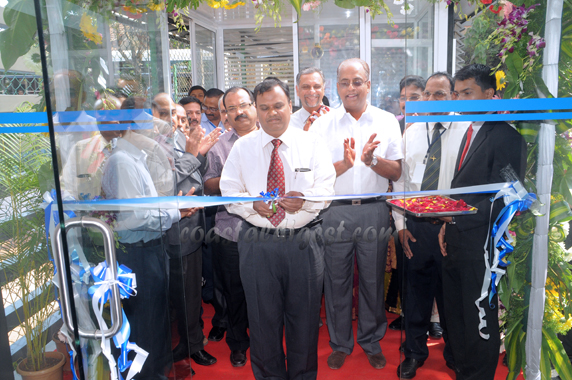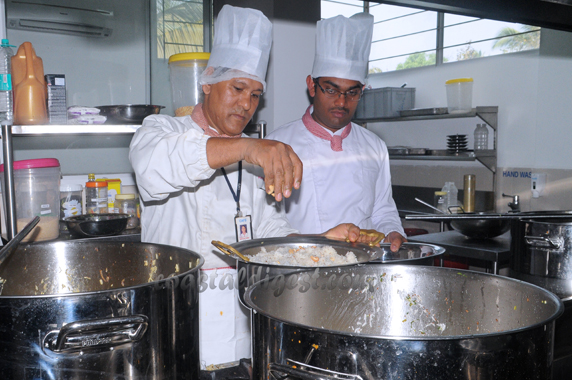
Mangalore, Feb 11: Mangalore's first exclusive flight catering facility - Casino Air Caterers and Flight Services (CAFS) – was inaugurated at Kenjar near Mangalore International Airport on Tuesday, to cater to flights departing from the airport.
The flight catering unit was inaugurated by Airport director J T Radhakrishnan at Kenjar close to the airport.
The unit began its catering operations on Tuesday for Jet Airways flights bound to Mumbai. It currently caters to domestic flights of Jet Airways departing from Mangalore.
Speaking after the inauguration, CAFS Chief Executive Officer George Dominic said that the exclusive flight catering facility was a major step in taking civil aviation in Mangalore to the next level. CAFS is a subsidiary of CGH Earth – a leading chain of hotels in South India. The newly-inaugurated flight catering unit in Mangalore is the fourth unit established by CAFS and its second venture in Karnataka. Every international airport needs to have a facility dedicated to catering fresh food to airlines, he said.
He said that the security of the flight and its passengers was critical, and hence all security measures would be employed to ensure this. Until the food is loaded on the aircraft, it is constantly tested in the facility, he said.
Airport director Mr Radhakrishnan said that the new flight catering facility would attract more airlines to operate in Mangalore in the future. It will also enable international airlines to start their operations in Mangalore as they require food from certified catering units. This will be the trend in the future, he said.
He said that the proximity of the catering unit to the airport was an added benefit since the freshness of the food would be maintained.
Manager of CAFS, Mangalore Francis Aranha said that the production capacity of the catering facility was 4,000 meals on an average per day, while its current production was 500 meals per day approximately.
The facility had an operations area and food processing area with a staff kitchen, hot kitchen, storage units, stores chiller and freezer, blast chiller, finished product chiller, holding chiller and loading bays.
CAFS - Chief Operating Officer V B Rajan, vice president G Premnath, Air India Express station manager Nagesh Shetty and Jet Airways station manager Gladwin were present.









Comments
Haha..some of the pointa on that list are really funny
Add new comment